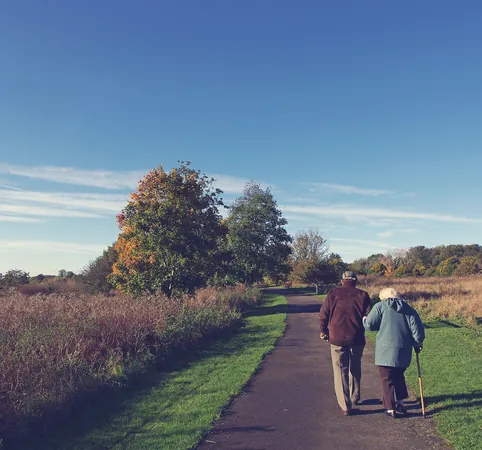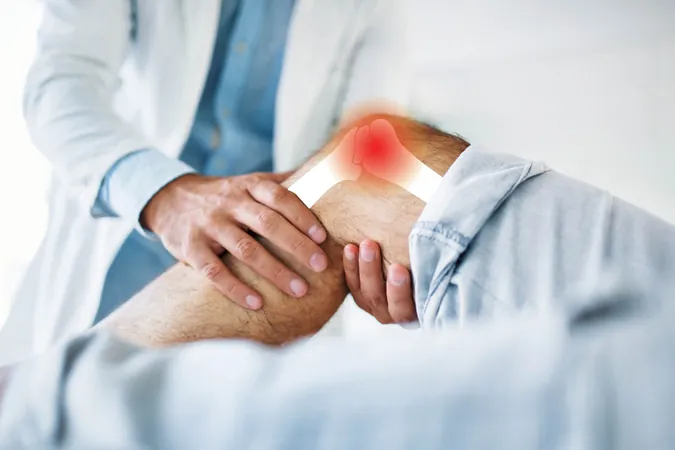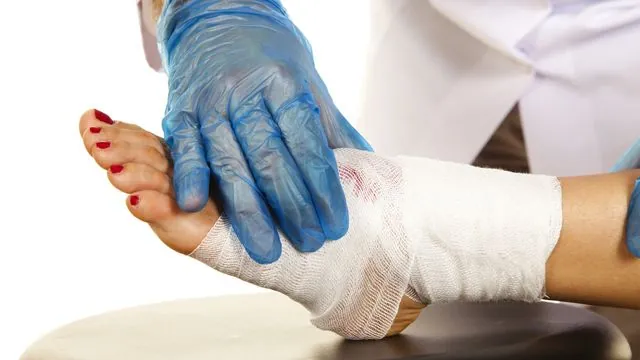
Why Rural Women Are Suffering More During Menopause: Shocking Study Reveals Disturbing Trends!
2025-01-02
Author: Yu
Rural Women Experience More Menopausal Symptoms
A groundbreaking study published in the journal Menopause reveals that menopausal and postmenopausal women living in rural areas experience significantly more symptoms compared to their urban counterparts. These women reported higher instances of mood swings, joint pain, vaginal dryness, and urinary issues, raising serious concerns about the quality of healthcare available to them.
This study is one of the first to explore how menopause affects women differently based on their geographical location, socioeconomic status, and access to healthcare resources, explained Dr. Susan Reed, a prominent OB-GYN from UW Medicine and one of the study's leading authors. "It wasn’t surprising to see the differences, as we know urban and rural health outcomes vary across the board," she noted.
Historical Gaps in Research
Historically, research has primarily focused on rural health issues like heart disease and suicide rates, leaving a gap in understanding menopause-related challenges faced by rural women. The study highlights alarming disparities in knowledge about menopause, available treatment options, and personal experiences contingent on women’s locations.
Education and Treatment Disparities
Women in rural areas are severely disadvantaged regarding education from health care providers about menopause and treatments such as menopausal hormone therapy, which can effectively manage symptoms. Unfortunately, many rural healthcare providers either do not discuss hormone replacement therapy or simply don’t offer it as a viable option.
Logistical Challenges in Seeking Help
Erin Dwyer, the lead author and a medical student in Montana, noted that logistical issues complicate seeking medical help for menopause. For many women, a specialist visit could involve over an hour of driving, meaning many prioritize other responsibilities such as work and childcare over potentially life-changing appointments. "Some patients must undertake a long journey for a brief consultation, which can feel discouraging," she stated.
Alarming Data on Rural Women's Health
Data collected from an online survey of 1,531 women in 2019 painted a bleak picture of rural women's health. The findings revealed that they endure greater psychological and physical burdens than those living in suburban and urban areas. Factors such as lower socioeconomic status, higher obesity rates, and limited access to genitourinary healthcare contribute to these vast differences.
Low Utilization of Hormone Replacement Therapy
Worryingly, the study found that a mere 11% of women across all regions utilized hormone replacement therapy, despite many reporting persistent hot flashes. Fear surrounding hormone therapy's potential cancer risks keeps many from discussing treatment with their providers. Dr. Reed clarified that while there are some risks associated with hormone treatment, particularly for women who haven’t undergone hysterectomies, many misconceptions remain unchallenged in medical conversations.
The Need for Tailored Interventions
In settings where healthcare discussions seldom happen, rural women often choose to "tough it out" instead, opting to ignore debilitating symptoms rather than seek help. However, this inaction can have severe long-term consequences, including increased risks for cardiovascular issues and cognitive decline linked to protracted hot flashes and other menopausal symptoms.
The study's authors urge for tailored interventions aimed at improving menopausal care for rural women. They emphasize the necessity for education that clarifies the risks and benefits of treatments, especially hormonal therapies, suggesting that heightened awareness could mitigate health disparities faced by these women.
A Call to Action
Dr. Reed describes the survey as a critical first step in addressing larger questions pertaining to the healthcare needs of underserved women in rural communities. The research was initiated by the nonprofit Healthy Women in collaboration with WebMD, gathering responses from women across all 50 states.
As awareness spreads about these alarming healthcare inequities, can we expect changes that will finally support rural women during their menopause journey? The call for action has never been more urgent!





 Brasil (PT)
Brasil (PT)
 Canada (EN)
Canada (EN)
 Chile (ES)
Chile (ES)
 Česko (CS)
Česko (CS)
 대한민국 (KO)
대한민국 (KO)
 España (ES)
España (ES)
 France (FR)
France (FR)
 Hong Kong (EN)
Hong Kong (EN)
 Italia (IT)
Italia (IT)
 日本 (JA)
日本 (JA)
 Magyarország (HU)
Magyarország (HU)
 Norge (NO)
Norge (NO)
 Polska (PL)
Polska (PL)
 Schweiz (DE)
Schweiz (DE)
 Singapore (EN)
Singapore (EN)
 Sverige (SV)
Sverige (SV)
 Suomi (FI)
Suomi (FI)
 Türkiye (TR)
Türkiye (TR)